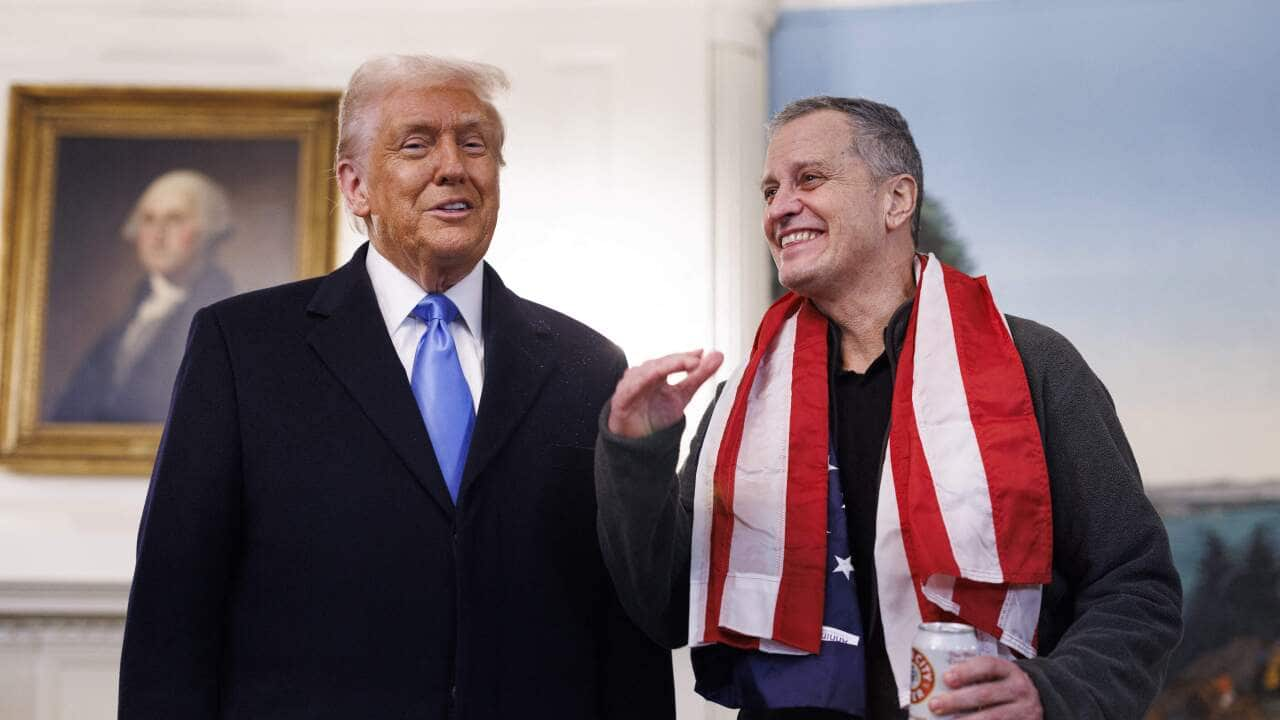Key Points
- President Trump spoke to Russian President Vladimir Putin and Ukrainian President Volodymyr Zelenskyy.
- He announced both leaders wanted peace and that negotiations for a ceasefire would begin 'immediately'.
- It comes after US Defence Secretary Pete Hegseth stated restoring Ukraine's pre-2014 borders was unrealistic.
Donald Trump discussed the war in Ukraine on Wednesday in phone calls with Russian President Vladimir Putin and Ukrainian President Volodymyr Zelenskyy, the new US president's first big step towards diplomacy over a war he has promised to end.
In a post on his social media platform after speaking to Putin, Trump said they had "agreed to have our respective teams start negotiations immediately," and that he would begin by phoning Zelenskyy.
After speaking to Zelenskyy, Trump said: "The conversation went very well. He, like President Putin, wants to make PEACE."
The Ukrainian leader's office said Trump and Zelenskyy had spoken by phone for about an hour, while the Kremlin said Putin's call with Trump lasted nearly an hour and a half.
"I had a meaningful conversation with @POTUS. We... talked about opportunities to achieve peace, discussed our readiness to work together ...and Ukraine's technological capabilities... including drones and other advanced industries," Zelenskyy wrote on X.
The Kremlin said Putin and Trump had agreed to meet, and Putin had invited Trump to visit Moscow.
Does this mean Ukraine will surrender?
Trump has long said he would quickly end the war in Ukraine, without spelling out exactly how he would accomplish this.
Earlier on Wednesday, Trump's defence secretary, Pete Hegseth, delivered the new administration's bluntest statement so far on its approach to the war, saying recovering all of Ukraine's territory occupied by Russia since 2014 was unrealistic, as was securing its membership in NATO.
"We want, like you, a sovereign and prosperous Ukraine. But we must start by recognising that returning to Ukraine's pre-2014 borders is an unrealistic objective," Hegseth told a meeting of Ukraine and more than 40 allies at NATO headquarters in Brussels.
"Chasing this illusionary goal will only prolong the war and cause more suffering."
Hegseth said any durable peace must include "robust security guarantees to ensure that the war will not begin again". But he said US troops would not be deployed to Ukraine as part of such guarantees.
"The United States does not believe that NATO membership for Ukraine is a realistic outcome of a negotiated settlement".
How has the world responded?
France, Germany and Spain said Ukraine's fate must not be decided without Kyiv's active participation, with French foreign minister Jean-Noel Barrot saying Europe would play its role in offering security guarantees for Ukraine even if NATO membership were not immediate.
German foreign minister Annalena Baerbock urged Putin to "end the disaster" in Ukraine and to start peace negotiations.
British defence secretary John Healey on Wednesday said it was for Ukraine to decide the timing and terms of any negotiations on ending the war with Russia.
And French foreign minister Jean-Noël Barrot said he was bringing together European leaders from the UK, Germany, Poland, Spain, Italy and Ukraine in Paris to discuss the war on Wednesday evening.
Zelenskyy, hoping to keep Trump interested in continuing to support his country, has lately proposed a deal under which the US would invest in minerals in Ukraine.
Trump's treasury secretary Scott Bessent, in Kyiv on Wednesday on the first visit by a cabinet member in the new US administration, said such a mineral deal could serve as a "security shield" for Ukraine after the war.
No peace talks have been held since the early months of the conflict, now approaching its third anniversary. Trump's predecessor Joe Biden and most Western leaders held no direct discussions with Putin after Russia launched its full-scale invasion of Ukraine in February 2022.



